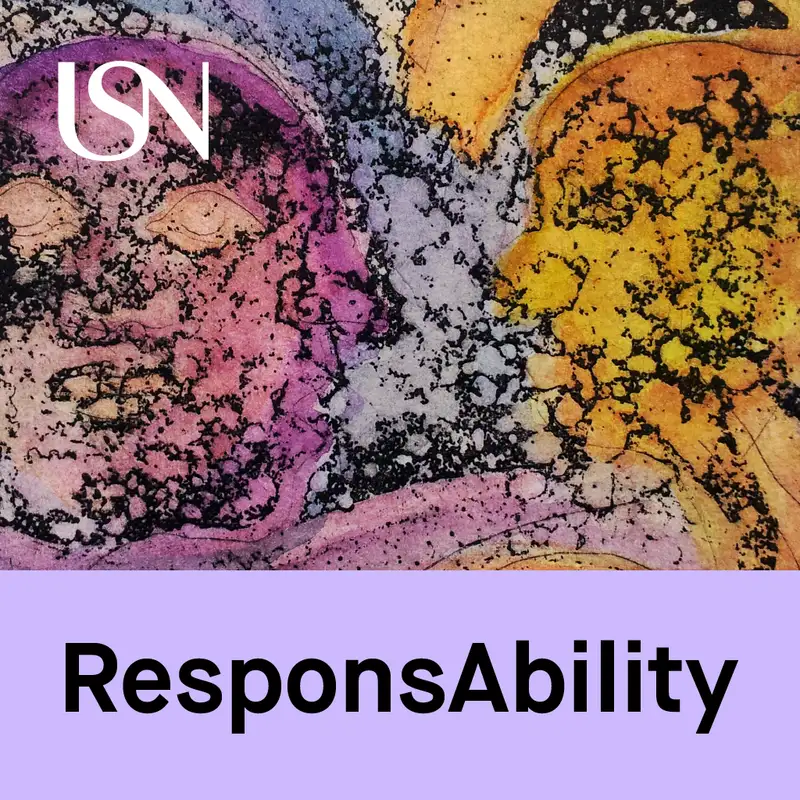#14 Helgard Mahrdt | Hannah Arendt and the Double Responsibility of Educators
TRANSCRIPT SUMMARY
(This transcript summary was AI-generated and then edited by the podcast hosts for quality assurance)
#14 HELGARD MAHRDT | HANNAH ARENDT AND THE DOUBLE RESPONSIBILITY OF EDUCATORS
- a podcast dialogue with Michael Noah Weiss and Guro Hansen Helskog
INTRODUCTION
In this reflective episode, Dr. Helgard Mahrdt speaks with the ResponsAbility podcast hosts about her engagement with the political thought of Hannah Arendt. Drawing on years of research—including work at the Library of Congress—Mahrdt explores Arendt’s insights on education, political responsibility, and the condition of modernity. What emerges is a compelling case for why Arendt’s ideas remain urgently relevant for educators, citizens, and democratic societies today.
DISCOVERING ARENDT: GUILT, RESPONSIBILITY, AND UNDERSTANDING
Mahrdt’s interest in Arendt was sparked indirectly while researching the German writer Ingeborg Bachmann. Their correspondence led her to Arendt’s work, especially The Origins of Totalitarianism, which addresses how totalitarian regimes emerge within so-called civilized societies. Mahrdt was especially drawn to Arendt’s ability to speak about political responsibility without reducing it to collective guilt.
For Arendt, understanding—not system-building—was her central concern. Her work sought to make sense of how radical evil could arise, how responsibility can be borne individually and politically, and how the world might be renewed through thoughtful action.
THE EDUCATOR’S DOUBLE RESPONSIBILITY
One of the conversation’s central themes is Arendt’s notion of the educator’s double responsibility: to the world and to the student. Drawing from essays like “The Crisis in Education,” Mahrdt explains that Arendt saw modern education as caught in the breakdown of tradition, authority, and continuity—what she called the trinity that once upheld education.
As tradition and religious authority eroded, Arendt believed education needed a new foundation. Adults must preserve the world for the next generation while also honoring the unique potential and “newness” of every child. This tension is the heart of educational responsibility: holding space for both conservation and renewal.
Crucially, education is not the job of schools alone. All adults share responsibility for passing down a world worth inheriting—a world made by humans through institutions, culture, and shared meaning.
WORLDLINESS, ALIENATION, AND THE HUMAN CONDITION
Mahrdt discusses Arendt’s reaction to the launch of Sputnik in 1957, which she saw as a symbolic break from our rootedness on Earth. This concern wasn’t just about space exploration, but about world alienation—a loss of connection to shared life, community, and responsibility.
In education, this alienation shows up when learning is shaped solely by economic or technological imperatives, with little space for ethical or historical reflection. Students may become skilled, but not grounded; informed, but not wise. Mahrdt emphasizes that without a connection to the world as a human-made, shared space, education loses its purpose.
MORAL AND POLITICAL RESPONSIBILITY
The hosts ask Mahrdt to clarify Arendt’s distinction between personal and political responsibility. Personally, we are accountable for our actions. Politically, we bear responsibility for what our governments do, especially in democratic societies where participation—through voting or silence—implies consent.
Arendt challenged the idea that judgment requires moral superiority. Instead, she saw judgment as essential to public life. Citizens must be willing to judge and reflect—not in the sense of condemning others, but to preserve a moral-political framework. Without thinking and remembering, judgment becomes impossible.
This brings Arendt’s analysis of Adolf Eichmann into focus. He was not a monstrous figure, she argued, but a man who failed to think, to remember, and thus became capable of great evil. For education, then, the core task is to cultivate habits of thinking, remembering, and judging—foundations for moral and political maturity.
PUBLIC LIFE AND PLURALISM
Turning to democratic discourse, Mahrdt underscores Arendt’s belief in the public realm as a space where diverse perspectives are shared, challenged, and examined. Thinking may begin in solitude, but it only becomes meaningful when brought into conversation with others.
Today’s digital echo chambers, Mahrdt warns, erode this public realm by isolating people in ideological silos. Pluralism—bringing multiple perspectives into relation—is not just a democratic virtue, but a political necessity. Opinions rooted in real experiences must be voiced, heard, and contested in a shared world.
Teachers, Mahrdt argues, have a critical role here. Passion for the world must be part of their work—passing on not just facts, but a sense of care for the future. At the same time, the urgency of youth must be met with realism. Lasting change requires patience, dialogue, and cooperation. Autocratic systems may act faster, but they do so at the cost of freedom.
UNIVERSITIES AND DEMOCRATIC RESPONSIBILITY
The conversation also addresses universities and their political role. Referencing attempts by the Trump administration to influence institutions like Harvard, Mahrdt defends the idea that universities are not politically neutral—they are sites of public reasoning and must resist authoritarian pressure.
She praises academic resistance to political overreach and reminds listeners that attacks on universities are not isolated national issues. In a globally connected world, the erosion of academic freedom in one place affects discourse and democracy everywhere.
CONCLUSION
In closing, Mahrdt returns to Arendt’s vision of education as world-building. To educate is to care for the world enough to introduce it to the young. It’s not about mere knowledge transmission but about equipping new generations to judge, act, and participate in public life.
Education, like politics, is rooted in action—not abstract ideals, but concrete commitments. In a time of polarization and distraction, the task of renewing the world falls to each of us—teachers, students, and citizens alike.
